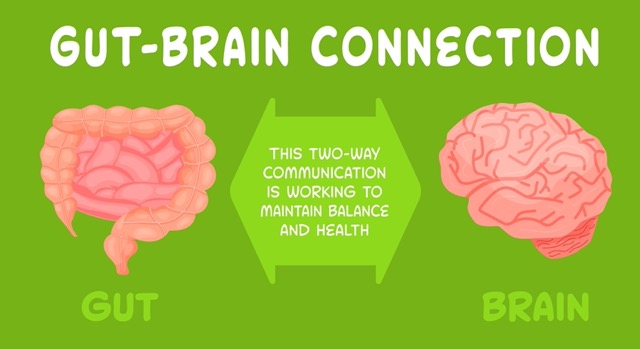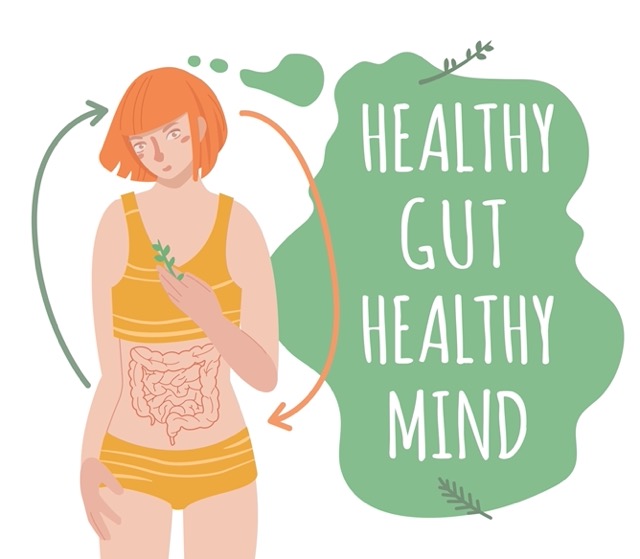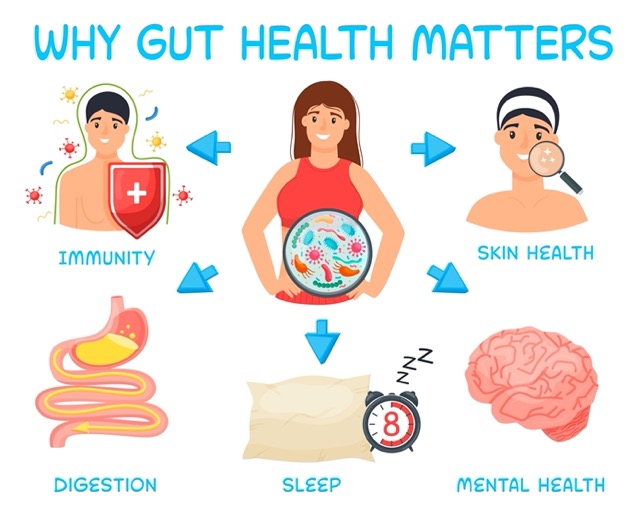This blog will give 15 practical ways to improve gut health and unlock the potential for a healthier brain. Implementing these steps will be a good foundation for creating a healthier brain-gut relationship and ultimately enhancing your overall quality of life.

Additionally, we will provide simple explanations about the brain-gut connection, how gut health affects the brain, and why nurturing your gut is essential for optimal brain function.
The Brain-Gut Connection Simplified

The brain-gut connection is how our brain and our gut (digestive system) communicate with each other. They send signals back and forth through a complex network of nerves and chemical messengers. Have you ever felt butterflies in your stomach when you’re nervous? That’s because your brain and gut are connected, and emotions can affect your digestive system. Similarly, the health of your gut can also influence your brain.
Why Keeping Your Gut Healthy Is Important For Brain Health

When your gut is healthy, it helps your brain work well, improving your mood, memory, and even how well you sleep. So, taking care of your gut can positively impact your brain and overall well-being.
Have you ever noticed that your mood also feels off when your stomach feels upset? That’s because your gut health can affect your brain significantly. Your gut has millions of tiny bacteria, called the gut microbiota, that live inside it. These bacteria play a vital role in keeping your gut healthy. Well-functioning gut microbiota, composed of beneficial bacteria, produces essential nutrients and metabolites that support brain health.
When your gut is healthy, these friendly bacteria help break down the food you eat and absorb important nutrients that your brain needs to function properly. They also produce special chemicals called neurotransmitters, which are like messengers that help your brain cells communicate with each other. A healthy gut ensures the optimal production and balance of neurotransmitters, such as serotonin and dopamine, which are essential for mood regulation, cognitive function, and emotional well-being.
When the gut is unhealthy or imbalanced, it can lead to chronic inflammation and impaired immune function, negatively impacting the brain and contributing to symptoms like brain fog and poor concentration. It can affect your mood, making you feel sad or anxious. It can also affect your memory, making it harder to remember things or think clearly.
Prioritizing and taking steps to improve gut health is a proactive approach to supporting and nurturing our brain health. Here are 15 ways to improve gut and brain health.
15 Ways To Improve Gut Health for a Healthier Brain
- Probiotics–Incorporate probiotic-rich foods like yogurt, kefir, sauerkraut, and kimchi into your diet.
- Prebiotics--Consume prebiotic-rich foods like garlic, onions, bananas, and asparagus to nourish beneficial gut bacteria.
- Fiber-Rich Diet–Include fiber from whole grains, fruits, and vegetables to support gut motility and encourage a diverse microbiome.
- Stay Hydrated–Drink plenty of water to maintain optimal digestion and prevent constipation.
- Reduce Stress–Practice stress management techniques such as meditation, deep breathing, or yoga to minimize gut-brain disturbances. Find healthy coping mechanisms to manage chronic stress, such as engaging in hobbies, spending time in nature, or seeking therapy.
- Regular Exercise–Engage in physical activity to promote healthy gut function and enhance digestion.
- Minimize Processed Foods–Limit processed and high-sugar foods that can disrupt the gut microbiome.
- Adequate Sleep–Prioritize quality sleep to support optimal gut and brain health.
- Manage Food Sensitivities–Identify and address any food sensitivities or intolerances that may be causing gut inflammation and affecting brain function.
- Mindful Eating–Slow down and savor your meals, allowing your body to properly digest and absorb nutrients.
- Diversify Your Diet–Consume various plant-based foods to promote a diverse and balanced gut microbiome.
- Limit Alcohol Consumption–Excessive alcohol intake can disrupt the gut lining and negatively impact gut bacteria.
- Herbal Support–Incorporate gut-supportive herbs like ginger, turmeric, and peppermint into your diet.
- Optimize Omega-3 Intake–Include omega-3 fatty acids from sources like fatty fish, flaxseeds, and chia seeds to support gut and brain health.
- Seek Professional Guidance—Consult with a health and wellness coach or registered dietitian to develop a personalized plan to improve your gut health.
Remember to consult with a health and wellness coach or healthcare professional before significantly changing your diet or lifestyle.
By implementing these tips to nurture your gut, you can positively impact our brain function, cognitive abilities, and emotional well-being. Remember, a healthy gut leads to a happy brain!
For more information about maintaining gut health, download my free e-book Gut Matters. For recipes to help maintain gut health, download my free-ebook meal planning e-book.








